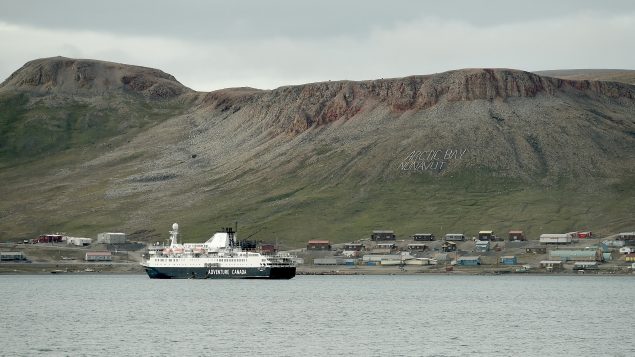Fuel consumption by ships plying Arctic waters grew by 82 per cent in recent years, according to a new report by the Arctic Council’s Protection of the Arctic Marine Environment (PAME) Working Group.
The report looked at fuel consumption by marine traffic in Arctic waters as defined by the Polar Code, which includes all of North American and Russian Arctic above 60 degrees north, but excludes Iceland and large chunks of the Norwegian and Barents seas in the European Arctic.
The report shows that between 2016-2019 most ships in the Arctic used distillate marine
fuel oil.
However, about 10 per cent of the ships in the Arctic used heavy fuel oil (HFO), also often referred to as bunker oil, a thick viscous residual fuel that produces high amounts of soot, particulate matter and black carbon.
The use of HFO in the Arctic is highly controversial because its consistency would make clean up after a potential spill extremely complex in the Arctic, according to numerous reports as well as Arctic Indigenous organizations.
Heavy fuel oil has been banned in ships operating in Antarctic waters since 2011 and a number of environmental and Indigenous groups have been lobbying the International Maritime Organization (IMO), the UN body that regulates maritime shipping, to ban in the Arctic as well.
The IMO’s sub-committee on Pollution Prevention and Response (PPR) agreed in February on the draft text of a ban on heavy fuel oil in the Arctic from July 1 2024, but with certain exemptions allowed, including waivers for Arctic coastal state flagged ships until July 1, 2029.
- Waivers to possible Arctic HFO ban denounced by Indigenous & environmental orgs
- Canada plans to support ban on heavy fuel oil in Arctic shipping
Environmental groups such as the Clean Arctic Alliance (CAA), a coalition of 20 not-for-profit organizations that are campaigning for a global HFO ban, have denounced the proposed text as a “ban in the name only.”
They argue that under the draft IMO Arctic HFO regulation, exemptions and waivers will allow 74 per cent of HFO-fueled ships to continue using HFO in the Arctic until mid-2029.
Andrew Dumbrille, a World Wildlife Fund – Canada specialist in sustainable shipping, said the PAME report reiterates a number of key reasons for the need to ban HFO as soon as possible.
The report highlights the severe spill impacts as well as the high levels of particulate matter and black carbon emissions associated with the use and carriage for use of HFO in the Arctic, Dumbrille said.
“It also clearly shows that shipping traffic is increasing in the Arctic, and that is a worrying trend with potential major community and environmental consequences,” Dumbrille said.
“With the Mauritius spill recently we’ve seen how devastating an HFO spill of only 1000 tonnes can be. To protect communities and ocean health we need a full ban quickly in the Canadian Arctic and globally.”
The WWF is calling for the closing of loopholes and the Clean Arctic Alliance is calling for no waivers or exemptions, Dumbrille said.
“Also, it’s our view that a federal transition fund should be established in Canada to support the move away from HFO, not a system of waivers or exemptions to postpone and continue the use of HFO,” Dumbrille said.
“If waivers are included in the ban once the regulation is approved at the IMO then Canada shouldn’t grant them, but rather financially support the immediate transition to cleaner, less polluting, less hazardous fuels.”
A federal transition fund to support the move away from HFO could offset any increase in the costs of goods in the Arctic associated with the ban, and it would put the shipping industry on a cleaner, less polluting pathway, he added.
“Only 20 per cent of the HFO used in the Canadian Arctic would be banned by 2024 and 16 per cent banned globally. That’s not a ban,” Dumbrille said, adding that the federal government should advocate for improved language at the upcoming IMO meeting and closing the loopholes.







For reasons beyond our control, and for an undetermined period of time, our comment section is now closed. However, our social networks remain open to your contributions.